Women Inclusion For A New Nigeria!
Women Powering New Possibilities For Sustainable Development In Nigeria!
Working Together Towards Women Inclusion For A New Nigeria
BIG WINN 4 DEVELOPMENT
As of 2022, Sub-Saharan Africa had closed 67.9 percent of its gender gap. This means females were, on average, some 32 percent less likely to have the same opportunities as males in the region. From a country perspective, performances varied greatly.
Nigeria has been ranked 123rd out of 146 countries on the 2022 global gender gap index, and moved up 16 places from its 139th ranking out of 156 countries in 2021.
Nigeria is ranked 123rd from an overall perspective but, on economic participation, the country sits at the 50th place. In terms of political participation, Nigeria is ranked 141st in the world; on health and survival, 70th; and in educational attainment, the country is on the 134th spot.
Nigeria is also ranked 27th in sub-Saharan Africa. In 2022, global gender gap index score for Nigeria was 0.64.
The Global Gender Gap Index measures gender-based gaps based on four dimensions: Economic Participation and Opportunity, Educational Attainment, Health and Survival, and Political Empowerment. The highest possible score is one, which signifies total equality between women and men.
Activating A New Nigeria that Empowers Every Woman and Girl!
The gender gap, or gender inequality, in Nigeria is relatively high compared to peer countries and this leaves us short on a key ingredient to economic success. In educational enrolment rates, girls are less likely to go to school than boys are. Women are less likely to access health services or gain access to financial services. Legal gaps persist in practice and access—although at the national level, laws that grant women and men equal rights do exist.
In the labour market, a 4:3 male to female participation ratio exists (i.e. for every four men, three women participate). Women usually participate more in the informal economy. They are more likely to work in agriculture or in a lower productivity environment. Political and leadership representation of women is lower than for men—less than 6 percent of seats in parliament are held by women and less than every sixth firm has participation and ownership or senior management positions held by women.
These opportunity gaps translate into differences in outcomes and ultimately contribute towards deepening the socio-economic divides that already exist. Closing gender gaps and promoting gender equality is beyond a moral choice or demand. It is smart economics, it is smart leadership.
Under the leadership of Senator Elect Ireti Kingibe the ANNEW Campaign is a BIG WINN Initiative (SDG 5 program which posits that "Gender equality is not only a fundamental human right, but a necessary foundation for a peaceful, prosperous and sustainable world. And prioritizes providing women and girls with equal access to education, health care, decent work, and representation in political and economic decision-making processes, in order to fuel sustainable economies and benefit societies and humanity at large.
WORKING TOGETHER FOR A NEW NIGERIA TO EMPOWER WOMEN
The ANNEW Impact Community!
The ANNEW Impact Community is an Inclusive Democracy volunteer program that advocates for and empowers the women voter-community across Nigeria to guarantee Open Governance, Sustainable Leadership and Equitable Development Impact in every City, Community, public platform and office.
The impact network activates a grassroots Good Governance volunteers program that empowers over 50 women per polling unit to activate, accelerate and advocate the Sustainable Development Framework for a New Nigeria Agenda.
The ANNEW Campaign is situated to mobilize the biggest and greenest Gender-based ‘New Nigeria’ Democracy Action Marshalls program based on the conviction that Women and Youths at the frontlines of leadership and action to ensure the realization of Inclusive, Sustainable and Equitable progress and development in Nigeria.

